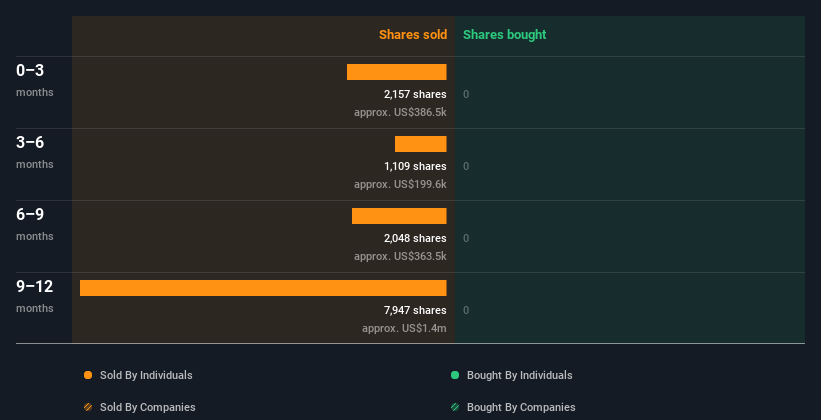Texas Instruments Incorporated (NASDAQ:TXN) insiders sold US$2.3m worth of stock suggesting impending weakness.
The fact that multiple Texas Instruments Incorporated (NASDAQ:TXN) insiders offloaded a considerable amount of shares over the past year could have raised some eyebrows amongst investors. When evaluating insider transactions, knowing whether insiders are buying versus if they selling is usually more beneficial, as the latter can be open to many interpretations. However, when multiple insiders sell stock over a specific duration, shareholders should take notice as that could possibly be a red flag.
While we would never suggest that investors should base their decisions solely on what the directors of a company have been doing, we do think it is perfectly logical to keep tabs on what insiders are doing.
Check out our latest analysis for Texas Instruments
Texas Instruments Insider Transactions Over The Last Year
In the last twelve months, the biggest single sale by an insider was when the Senior Vice President of Analog Signal Chain, Hagop Kozanian, sold US$1.0m worth of shares at a price of US$170 per share. That means that an insider was selling shares at slightly below the current price (US$184). We generally consider it a negative if insiders have been selling, especially if they did so below the current price, because it implies that they considered a lower price to be reasonable. Please do note, however, that sellers may have a variety of reasons for selling, so we don't know for sure what they think of the stock price. We note that the biggest single sale was only 12% of Hagop Kozanian's holding.
Insiders in Texas Instruments didn't buy any shares in the last year. You can see the insider transactions (by companies and individuals) over the last year depicted in the chart below. By clicking on the graph below, you can see the precise details of each insider transaction!
If you like to buy stocks that insiders are buying, rather than selling, then you might just love this free list of companies. (Hint: insiders have been buying them).
Insiders At Texas Instruments Have Sold Stock Recently
The last quarter saw substantial insider selling of Texas Instruments shares. In total, insiders dumped US$386k worth of shares in that time, and we didn't record any purchases whatsoever. This may suggest that some insiders think that the shares are not cheap.
Does Texas Instruments Boast High Insider Ownership?
Many investors like to check how much of a company is owned by insiders. We usually like to see fairly high levels of insider ownership. Texas Instruments insiders own 0.1% of the company, currently worth about US$205m based on the recent share price. Most shareholders would be happy to see this sort of insider ownership, since it suggests that management incentives are well aligned with other shareholders.
So What Does This Data Suggest About Texas Instruments Insiders?
Insiders sold Texas Instruments shares recently, but they didn't buy any. And even if we look at the last year, we didn't see any purchases. On the plus side, Texas Instruments makes money, and is growing profits. While insiders do own a lot of shares in the company (which is good), our analysis of their transactions doesn't make us feel confident about the company. So while it's helpful to know what insiders are doing in terms of buying or selling, it's also helpful to know the risks that a particular company is facing. To that end, you should learn about the 3 warning signs we've spotted with Texas Instruments (including 2 which don't sit too well with us).
But note: Texas Instruments may not be the best stock to buy. So take a peek at this free list of interesting companies with high ROE and low debt.
For the purposes of this article, insiders are those individuals who report their transactions to the relevant regulatory body. We currently account for open market transactions and private dispositions, but not derivative transactions.
Have feedback on this article? Concerned about the content? Get in touch with us directly. Alternatively, email editorial-team (at) simplywallst.com.
This article by Simply Wall St is general in nature. We provide commentary based on historical data and analyst forecasts only using an unbiased methodology and our articles are not intended to be financial advice. It does not constitute a recommendation to buy or sell any stock, and does not take account of your objectives, or your financial situation. We aim to bring you long-term focused analysis driven by fundamental data. Note that our analysis may not factor in the latest price-sensitive company announcements or qualitative material. Simply Wall St has no position in any stocks mentioned.
Join A Paid User Research Session
You’ll receive a US$30 Amazon Gift card for 1 hour of your time while helping us build better investing tools for the individual investors like yourself. Sign up here

 Yahoo Finance
Yahoo Finance 
